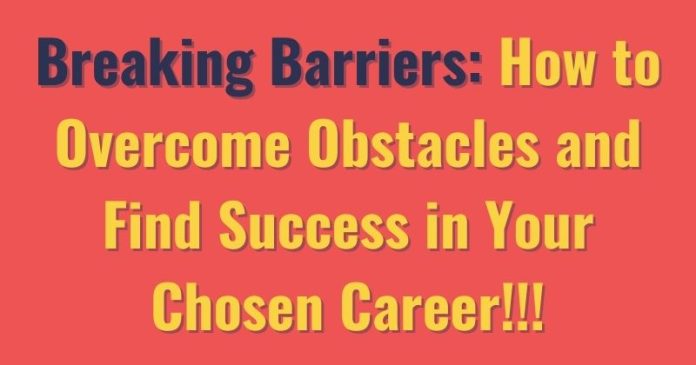Choosing a career is one of the most important decisions you’ll make. A promising career provides financial stability and can impact your overall well-being, happiness, and sense of purpose. However, with so many career options, it can be overwhelming to know where to start. That’s why it’s essential to approach career planning thoughtfully and strategically. Following these seven key steps, you can choose a career that fits your skills, interests, and values well.
1. Self-assessment:
Before choosing a career that’s right for you, it’s important to understand yourself. This means assessing your strengths, weaknesses, interests, values, and personality traits. You can do this by taking self-assessment tests, talking to a career counsellor, or simply reflecting on your experiences and preferences. By understanding what motivates you and what you’re good at, you can identify careers that align with your strengths and interests.
2. Research:
Once you better understand yourself, it’s time to research different career options. You can do this by looking at job descriptions, researching industries and companies, and talking to people who work in the field you’re interested in. Look for job duties, salaries, growth, and work-life balance information. This will help you narrow down your options and identify careers that are a good fit for you.
3. Networking:
Networking is a crucial part of finding the right career. By connecting with people who work in your desired field, you can learn more about the job, the industry, and what it takes to succeed. You can attend networking events, join professional organizations, and reach out to people on social media. Be sure to ask for advice and insights and show genuine interest in the field.
4. Skill development:
Once you’ve identified the career you want to pursue, acquiring the necessary skills and qualifications is important. This may involve getting a degree, taking courses or certifications, or gaining practical experience through internships or volunteer work. Look for opportunities to develop the skills and knowledge you need to succeed in your chosen field.
5. Decision-making:
Once you’ve researched and acquired the necessary skills, it’s time to decide. Evaluate the pros and cons of each option and make an informed decision based on your personal and professional goals. Consider the job duties, salary, work-life balance, job growth, and the overall fit with your interests and values. Be sure to weigh all the factors carefully before making a decision.
6. Flexibility:
Remember that your career journey may only sometimes follow a straight path. You may encounter unexpected opportunities or obstacles along the way. Be open to new opportunities and adapt to your industry or job market changes. This may involve learning new skills, changing jobs, or pursuing a different career altogether.
7. Persistence:
Finally, staying committed to your career goals and working hard to achieve them is important. This means staying motivated, setting realistic goals, and focusing on the big picture. Remember that building a successful career takes time and effort, but you can achieve your goals with persistence and dedication.
In conclusion, choosing a career wisely is a process that requires self-reflection, research, networking, skill development, decision-making, flexibility, and persistence. By taking the time to assess your strengths and interests, research different career options, connect with people in the industry, acquire the necessary skills, make informed decisions, stay flexible, and stay committed to your goals, you can find a career that brings you fulfillment and success. Remember, a career is not just a job but a path that can lead to personal and professional growth. So, take the time to choose wisely, and enjoy the journey.































